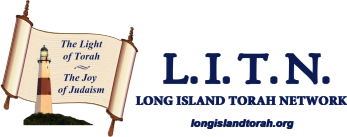Bamidbar
Bamidbar begins the Book of Numbers, the fourth book of the Torah.
Hashem orders a census of the Jewish People. The census serves as an expression of G-d’s love, conveying the message that every individual matters and must be counted. The census was performed in a most dignified manner, with Moses personally circulating through the camp and meeting with each family - all to help impress upon the people a sense of their innate worth and value.
The census also determined the number of individuals in each of the Twelve Tribes. As they traveled through the desert, each tribe camped in its own section - three on each side, with the Mishkan in the center. This arrangement mirrored the way Jacob’s twelve sons bore his body to the Promised Land for burial after his passing.
The Levite families were not included in the census of the Twelve Tribes. Because they had a separate role as the spiritual servants of the Jewish People, the Levites had a special census of their own. The Levites camped in an inner ring, situated between the Twelve Tribes and the Mishkan in the center. Each Levite family camped on a different side of the Mishkan, and had its own set of unique tasks to perform.
This Torah Portion helps remind us that every member of the Jewish Nation has a distinct identity, a place to reside, and a unique role as a member of G-d’s People.
Hashem orders a census of the Jewish People. The census serves as an expression of G-d’s love, conveying the message that every individual matters and must be counted. The census was performed in a most dignified manner, with Moses personally circulating through the camp and meeting with each family - all to help impress upon the people a sense of their innate worth and value.
The census also determined the number of individuals in each of the Twelve Tribes. As they traveled through the desert, each tribe camped in its own section - three on each side, with the Mishkan in the center. This arrangement mirrored the way Jacob’s twelve sons bore his body to the Promised Land for burial after his passing.
The Levite families were not included in the census of the Twelve Tribes. Because they had a separate role as the spiritual servants of the Jewish People, the Levites had a special census of their own. The Levites camped in an inner ring, situated between the Twelve Tribes and the Mishkan in the center. Each Levite family camped on a different side of the Mishkan, and had its own set of unique tasks to perform.
This Torah Portion helps remind us that every member of the Jewish Nation has a distinct identity, a place to reside, and a unique role as a member of G-d’s People.

